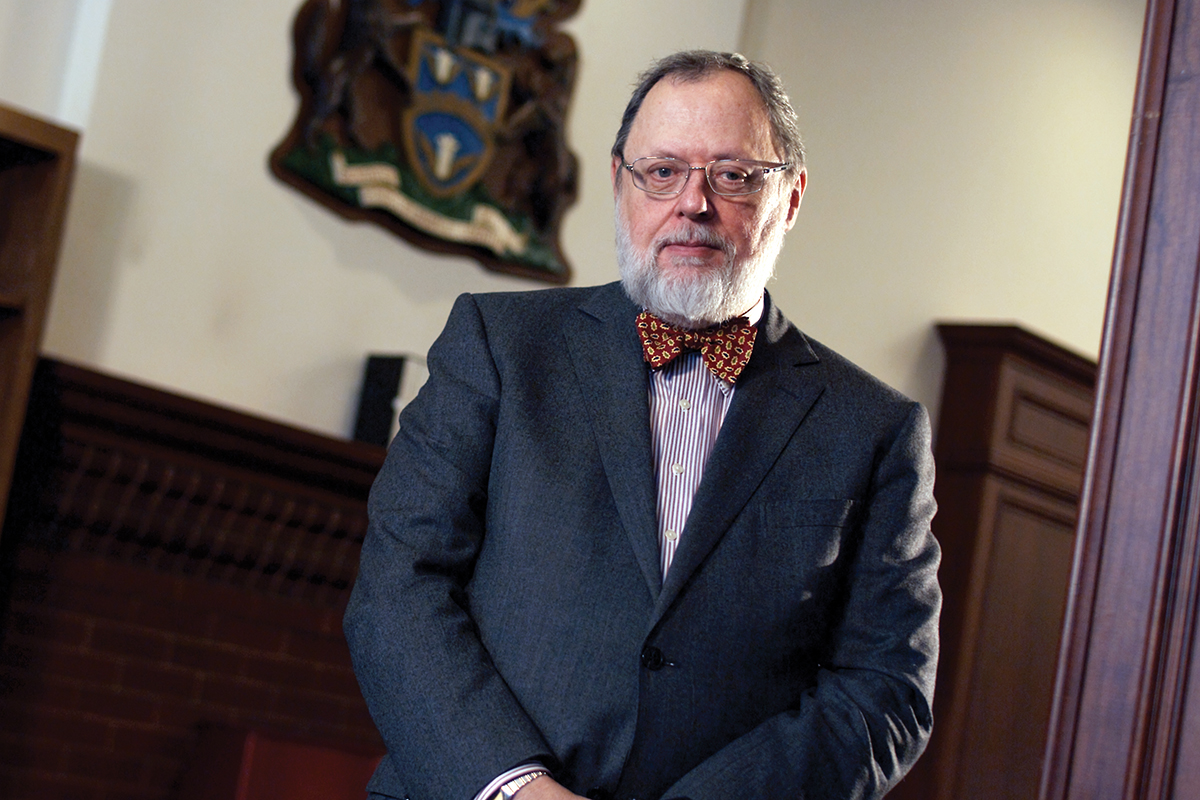Q What was it like being the Canadian ambassador to Israel?
A I first went to Israel as a middle-ranking political officer from 1975 to ’78, and then later returned for two stints as ambassador from 1990 to ’92 and 1999 to 2003. I enjoyed my time there. Israel has a tremendously impressive society. A good part of my enjoyment, I have to say, I attribute to the complexity of the situation, to trying to comprehend the struggle between the Palestinians and the Israelis. It was enormously intellectually stimulating, in particular living among a people that privilege active discussion. Education is highly valued, and many Israelis are notable for continued learning. This wasn’t true of the entire country, of course; you could live in largely secular Tel Aviv with virtually no awareness or discussion of what was happening in the West Bank.
You may unsubscribe from any of our newsletters at any time.
Q What is your take, at the present moment, on the Israeli-Palestinian conflict?
A The options for a viable solution, one leading to the establishment of a Palestinian state, have greatly diminished since my time there. The current Israeli government is right wing and expansionist, meaning that it wants to extend the Jewish presence in the West Bank by means of the so-called settlements. This precludes the creation of a viable Palestinian state. There are shortcomings on the Palestinian side as well.
The last real opportunity for an agreement was at the time of the “napkin map” affair in 2008. Then-Israeli prime minister Ehud Olmert showed Palestinian president Mahmoud Abbas a map of possible land-swap proposals but refused to allow him to take it with him, after which Abbas sketched a version of the map by hand on a napkin. In those discussions, Olmert proposed a land swap in which Israel would annex the settlements it had already established in Palestinian-majority East Jerusalem in return for land concessions by Israel to Palestinians elsewhere. After Olmert left, current Prime Minister Benjamin Netanyahu took office and dismissed previous discussions, insisting on starting all over again.
Opinion has hardened since then because of the frustration both sides feel about what they see as the unwillingness of the other side to concede anything. Distrust has grown on both sides, particularly among the Palestinians. The anxiety is palpable.
Q Do you think the Israeli occupation of the West Bank is permanent?
A I prefer to remain hopeful, but it wouldn’t surprise me. Years ago, there was a decent chance for a viable two-state solution, but now the settlements — with over half a million nationalist Israelis in them — are a growing and cancerous obstacle. After the failure of the Abbas-Olmert discussions, Hamas, in Gaza, argued that Abbas’s Fatah party was corrupt, that it couldn’t deliver, that it had nothing concrete to offer and that violence was the only option. It’s difficult to think that in any case those discussions would have arrived at a resolution based on the 1967 borders. Later, then-Israeli president Shimon Peres, on his own initiative, tried to restart far-reaching discussions with Mahmoud Abbas, but was told to drop them by Netanyahu.
I’m not sure, in fact, whether the conflict is resolvable at all. So many opportunities have been missed. The Americans, Canadians and the other key players would have to be willing to pay a very high political price in terms of domestic opinion. Occupation practices, including collective punishment, can be brutal and are the subject of considerable criticism from Israeli human rights and centre-left groups.
Q The Israeli government, you’ve said, is right wing. What about the left?
A If I were an Israeli on the moderate left, and I know many, I would be very discouraged. The current circumstances in much of the Arab world have fuelled a sense of siege, and with reason. They fear Islamic extremism and a nuclear Iran, and they fear that the establishment of a Palestinian state might give extremists entree into the Israeli heartland.
Q Where is Canada in all of this?
A Canada is officially opposed to the settlements in the West Bank, as are the Europeans and the Americans, regarding them as illegal under the Fourth Geneva Convention. Former prime minister Stephen Harper, however, contrary to stated Canadian foreign policy, volubly favoured Israel, in contrast to the more fair-minded approach of previous Canadian governments. His position, I would say, was based on his personal convictions as a Christian Zionist as well as on political considerations. Prime Minister Justin Trudeau is taking a cautious approach, saying that funding for the work of the United Nations Relief and Works Agency in the Palestinian territories, cancelled by Harper, may be restored. [Editor’s note: Last November, the Canadian government announced that it was restoring funding to UNRWA.] Canada has not been as forthright in its opposition to the settlements as the Europeans or the Americans have.
Q What is the best way for Canadians to inform themselves about the situation?
A I recommend the website of the Foundation for Middle East Peace (fmep.org) and the Israeli newspaper Haaretz (haaretz.com). There are many other good sources, including the Middle East Institute (mei.edu), the Jerusalem Institute for Israel Studies (jiis.org), Foreign Affairs magazine and often The Economist.
Q You are a co-director of the Jerusalem Old City Initiative. Can you explain what this project is about?
A It’s a project my colleagues and I have been working on since 2003, when I retired as ambassador. Michael J. Molloy and John Bell are the other co-directors. It involves developing creative options for the governance of the Old City of Jerusalem in preparation for a negotiated settlement between Israelis and Palestinians. It deals with archeology, law, entry and exit, internal security, economic relations, the status of foreigners, land titles, construction, sewage and much more. It does assume the realization of a two-state situation, the difficulty of which we have already discussed. Jerusalem is a city with which both the Israelis and Palestinians have powerful symbolic, religious and emotional attachments, and agreement on Jerusalem is essential to any workable peace plan. Routledge will publish our work in three volumes over the next year and a half.
Q A motion condemning the boycott, divestment, sanctions (BDS) movement passed in the House of Commons, and a similar resolution was defeated in the Ontario legislature. How do you see BDS?
A BDS is unlikely to affect Israeli government policy in any major way. However, it has affected, to some degree, the investment climate in Israel. Rightly or wrongly, it contributes to the sense of victimization that many Israelis already have and to the fear of anti-Semitism.
Q You’re an active member of the United Church. Did your time in the Middle East affect your faith in any particular way?
A I think of myself as a progressive Christian. Being in the Holy Land and visiting the authenticated sites of Christ’s activity was very rewarding because it gave me a sense of the real Jesus of Nazareth. It affirmed my sense of the importance of Christian values as I believe Jesus would have articulated them.
This interview has been condensed and edited.
This story originally appeared in the February 2017 issue of The UC Observer with the title “Interview with Michael Bell.”














